American Heart Association
-

VUSN faculty honored with advocacy award, fellowships
Three Vanderbilt School of Nursing faculty members were recently recognized for excellence across various nursing disciplines with fellow designations and major awards. Read MoreApr 26, 2024
-
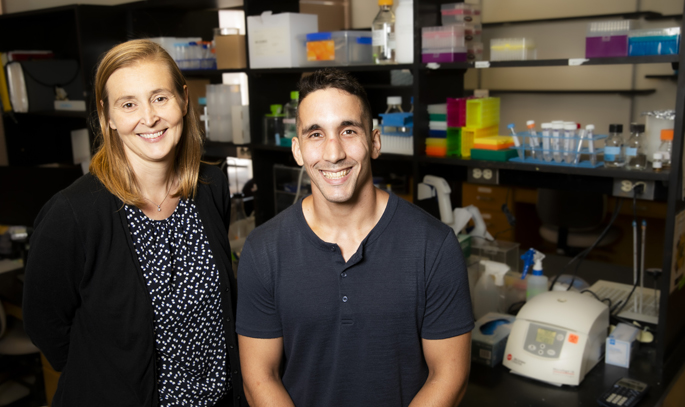
MicroRNAs in immune cells help protect against metabolic defects in obesity: study
Vanderbilt researchers have demonstrated that a cluster of microRNAs — small pieces of RNA that regulate gene expression — work in a type of immune cells called macrophages to help protect against metabolic defects in obesity. Read MoreSep 5, 2023
-

High blood pressure may accelerate bone aging according to new study led by Vanderbilt biomedical engineering graduate student
When high blood pressure was induced in young mice, they had bone loss and osteoporosis-related bone damage comparable to older mice, according to new research presented at the American Heart Association’s Hypertension Scientific Sessions 2022 conference. Read MoreSep 7, 2022
-

Study identifies key player in T cell “education”
New Vanderbilt research could inform therapeutic strategies for enhancing thymic function when desired — such as during aging, recovery from radiation therapy or chemotherapy, or other conditions that reduce T cell output. Read MoreSep 1, 2022
-
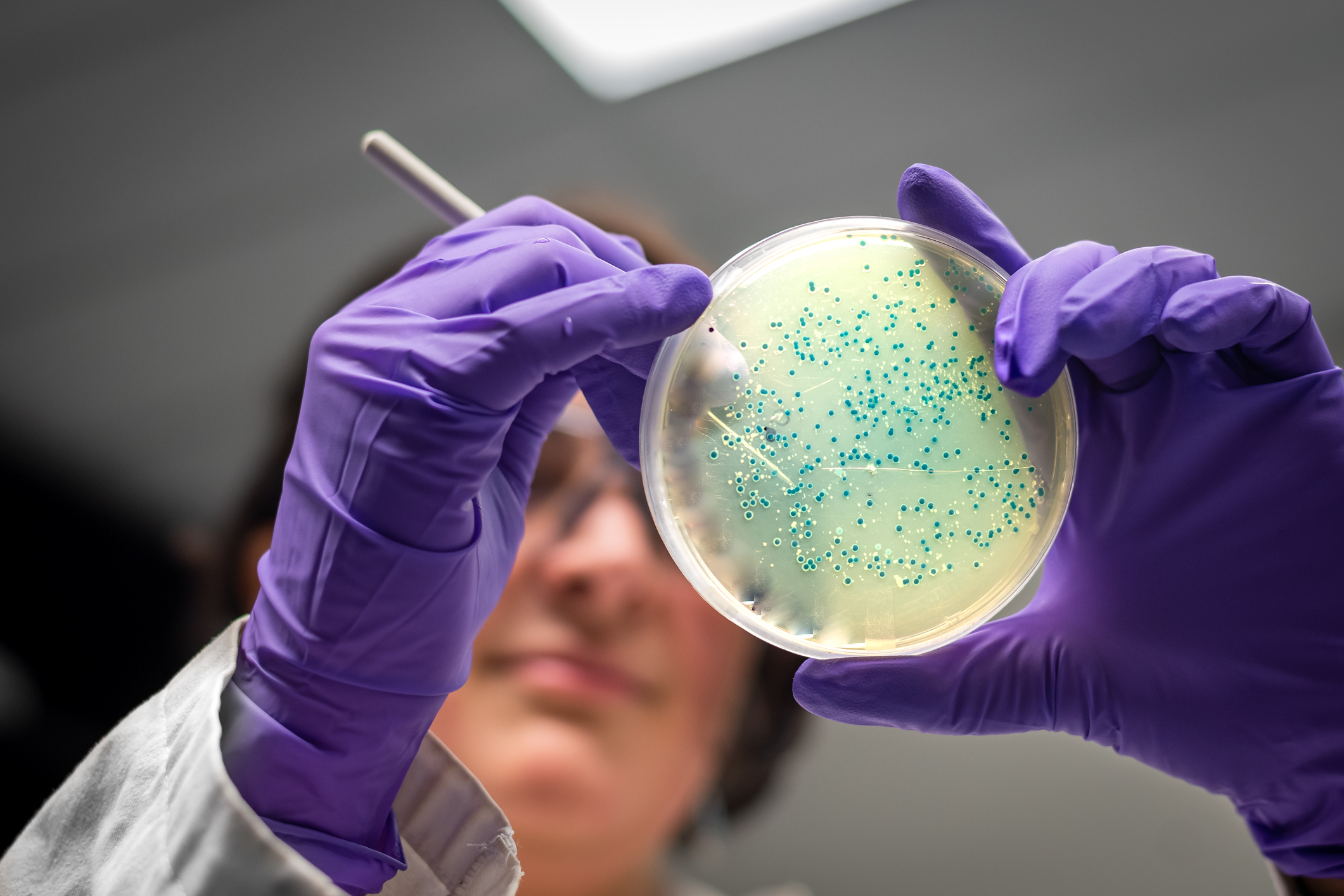
Leveraging the structure of bacterial host cell receptors to detect cancer
Biomedical researchers open the door to new ways to detect cancer cells. Read MoreAug 16, 2022
-
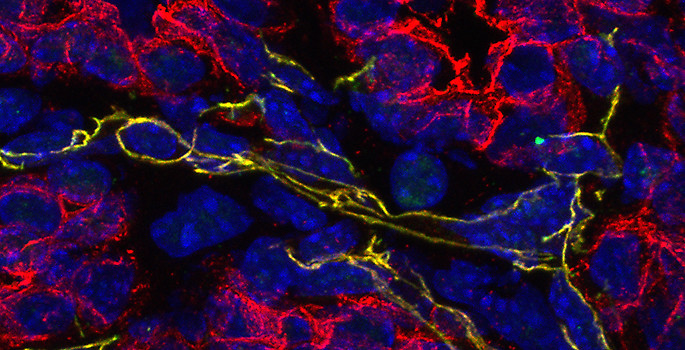
Research Snapshot: Researchers create algorithm to help predict cancer risk associated with tumor variants
Vanderbilt researchers have developed an active machine learning approach to predict the effects of tumor variants of unknown significance, or VUS, on sensitivity to chemotherapy. Characterizing VUS can maximize clinical care and precision medicine for each patient. Read MoreAug 9, 2022
-

Research Snapshot: Multisite collaboration shows that virtual research program provides benefits to underrepresented undergraduates
Five medical schools in the U.S., including Vanderbilt University School of Medicine, collaborated with the American Heart Association to implement a summer program designed to support diversity in biomedical science. The program, Supporting Undergraduate Research Experiences, was initiated in 2019 but had to adapt its format due to the COVID-19 pandemic. Read MoreMay 9, 2022
-
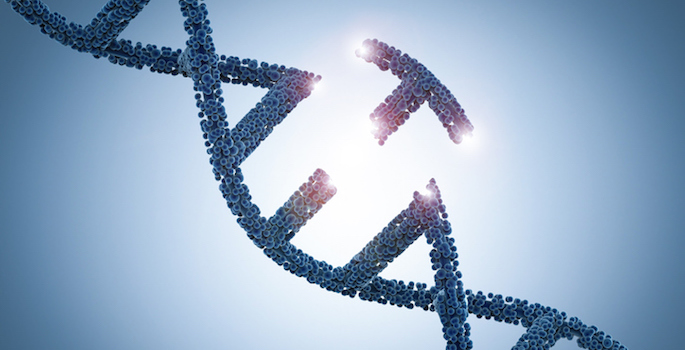
Studies combine genetic testing, electronic health records to find undiagnosed diseases
Combining genetic testing with information from electronic health records revealed undiagnosed heart rhythm disorders and new conditions associated with inherited cancer gene mutations. Read MoreApr 28, 2022
-

Churchwell discusses health equity with American Heart Association, receives honor from NAACP
Dr. André L. Churchwell recently represented Vanderbilt at the American Heart Association’s Scientific Sessions national conference, where he shared his expertise as a physician and as the university’s vice chancellor for equity, diversity and inclusion and chief diversity officer. Read MoreNov 19, 2021
-

Research Snapshot: Discovery shows how synapses are built and function in the nervous system
Discovering a signaling pathway’s influence on brain development in a nematode sheds light on human nervous systems. Est. reading time: 2 mins. Read MoreNov 8, 2021
-

Vitamin D impact on disease biomarkers
In a randomized controlled trial, vitamin D supplementation did not improve biomarkers for cardiovascular and metabolic disease. Read MoreAug 10, 2021
-
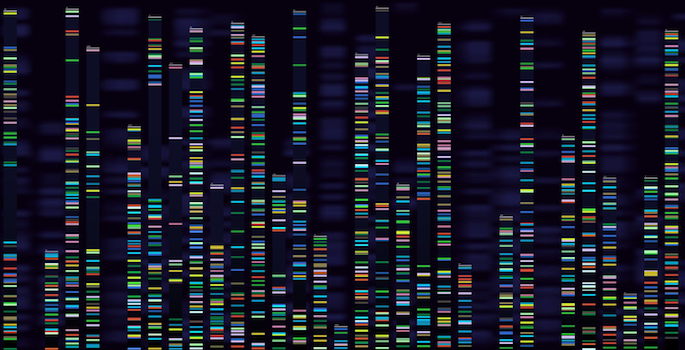
Probing statin-associated diseases with genetics
Vanderbilt researchers used genetics tools and biobanks with linked electronic health records to explore the associations between statins and noncardiovascular diseases. Read MoreJul 12, 2021
-

Heat for hypertension in autonomic failure
Heat therapy could offer a novel nonpharmacologic approach for treating the overnight hypertension that affects patients with autonomic failure. Read MoreMay 25, 2021
-
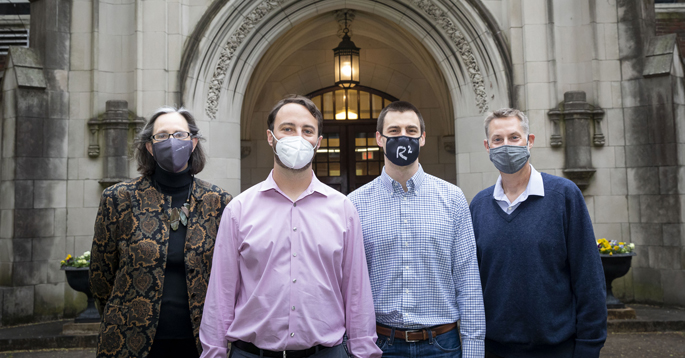
Study revises understanding of cancer metabolism
Tumors consume glucose at high rates, but a team of Vanderbilt researchers has discovered that cancer cells themselves are not the culprit, upending models of cancer metabolism that have been developed and refined over the last 100 years. Read MoreApr 7, 2021
-
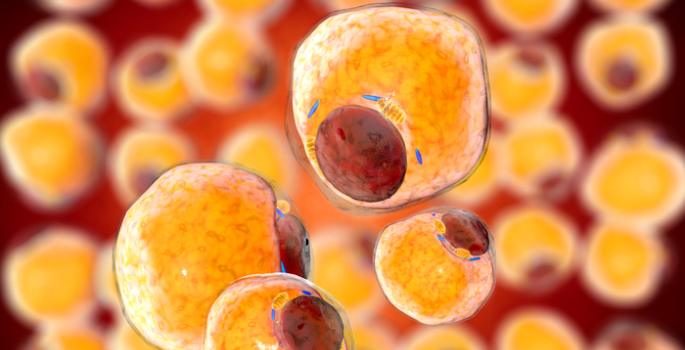
HIV, diabetes and immune cells in fat
In HIV-positive individuals with diabetes, immune cells in fat are more proinflammatory and cytotoxic and may represent a therapeutic target for diabetes. Read MoreMar 18, 2021
-

Gene variant and glucose metabolism
Genetic variation that impacts glucose- and insulin-related signaling affects responses to type 2 diabetes treatments and warrants further study. Read MoreFeb 18, 2021
-

Discovery shows how to treat heart attacks; drug development underway
David Merryman has discovered that targeting a protein receptor in heart cells may limit a heart attack’s acute and long-term effects. Read MoreFeb 11, 2021
-

Mitochondrial stress and hypertension
Oxidative stress and toxic products called isolevuglandins in mitochondria play a role in endothelial dysfunction and hypertension — and getting rid of them with a special “scavenger” molecule has therapeutic potential. Read MoreJan 12, 2021
-
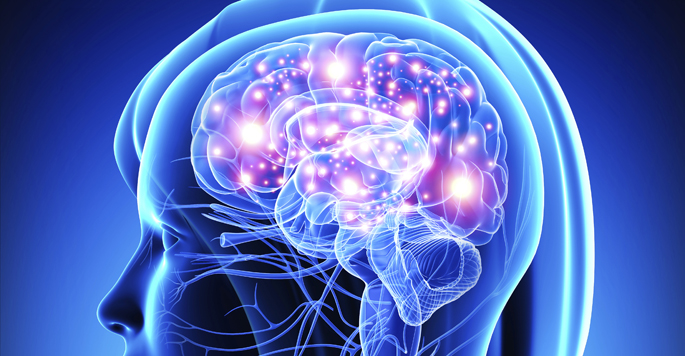
Depression and the brain-age gap
Older depressed adults show accelerated brain aging, according to a new study from Vanderbilt researchers, who suggest that the effects of depression may speed the decline in cognitive functions in older individuals. Read MoreOct 19, 2020
-

Salt, immune cells and hypertension
Excess dietary salt activates immune cells to induce inflammation and hypertension, supporting current recommendations for low sodium consumption. Read MoreAug 20, 2020